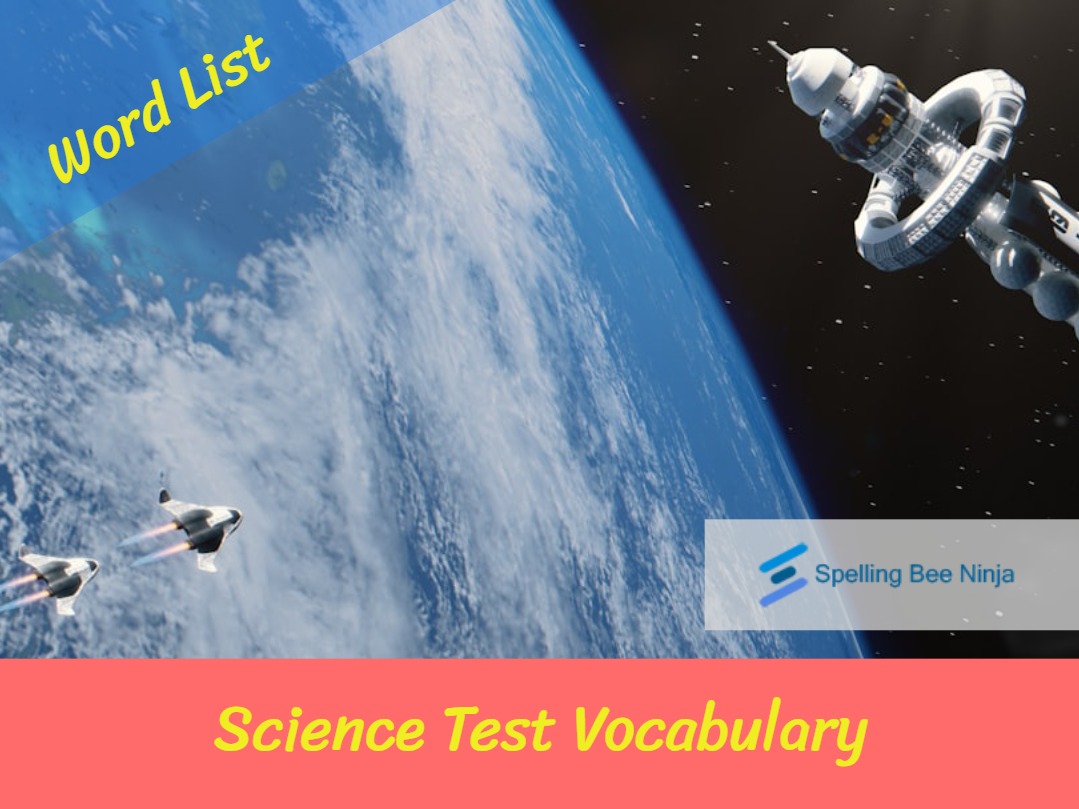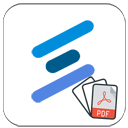Science is full of wonder, mystery, and discovery—and so is the vocabulary that comes with it! Whether students are learning about ecosystems, weather, forces, or matter, having a strong grasp of key science words helps them understand the world around them. It also prepares them for classroom discussions, projects, and science tests with confidence.
Let’s take a fun and educational journey through some of the most common science topics taught in elementary school—and along the way, we’ll uncover some amazing facts and vocabulary words that bring science to life!
Table of Contents
Ecosystems and Living Things
Did you know that a single teaspoon of soil can contain more living organisms than there are people on Earth? That’s because ecosystems—whether in a forest, ocean, or backyard garden—are buzzing with life, big and small.
Important Concepts:
Every ecosystem has producers, consumers, and decomposers.
Animals and plants depend on each other through food chains and food webs.
A habitat is where an organism lives, and it must meet all of its needs to survive.
Did You Know?
• Some fungi, like mushrooms, help decompose dead plants and return nutrients to the soil!
• Coral reefs are some of the most diverse ecosystems, often called the “rainforests of the sea.”
Weather and Climate
Weather is what’s happening outside today. Climate is what usually happens over a long time. Understanding weather helps students observe nature, make predictions, and even plan what to wear!
Important Concepts:
Weather includes temperature, precipitation, humidity, and wind.
Tools like thermometers, rain gauges, and anemometers help measure the weather.
Clouds come in many types, such as cumulus and stratus.
Did You Know?
• Lightning is hotter than the surface of the sun!
• Snowflakes always have six sides—and no two are exactly the same.
Matter and Its Properties
Matter is anything that has mass and takes up space. That includes everything around you—your desk, the air, your lunch, and even you!
Important Concepts:
Matter exists in three main states: solid, liquid, and gas.
Physical changes (like melting ice) don’t change what something is made of, but chemical changes (like rust) do.
Mass is how much matter something has, and volume is how much space it takes up.
Did You Know?
• Your body is made up of mostly oxygen, carbon, and hydrogen—just like stars!
• Air may seem invisible, but it’s made up of matter too—it has mass and takes up space.
Forces and Energy
From the moment you wake up to when you go to bed, forces and energy are all around you. They help you move, play, and learn how things work.
Important Concepts:
A force is a push or pull. Gravity pulls things down to Earth.
Friction is a force that slows things down.
Energy comes in many forms—heat, light, sound, and motion.
Did You Know?
• Without friction, your shoes couldn’t grip the floor—you’d be sliding everywhere!
• The sun provides almost all the energy that life on Earth uses.
Tools and Inquiry
Science isn’t just about facts—it’s about asking questions and finding answers. That’s where scientific tools and the scientific method come in!
Important Concepts:
Scientists use observation and experiments to learn.
Tools like microscopes, rulers, and beakers help collect data.
Key skills include predicting, measuring, and recording.
Did You Know?
• The first microscope was made over 400 years ago using just two lenses.
• You don’t need a lab coat to be a scientist—all you need is curiosity!
Why Science Vocabulary Matters
Knowing science words helps students:
- Understand and explain concepts
- Prepare for science quizzes and standardized tests
- Build reading comprehension in science texts
- Ask better questions and explore more deeply
Using vocabulary games, flashcards, puzzles, and even word searches can help make learning science terms fun and memorable!
50 Science Vocabulary Words for Elementary Grades
Meet the Minds Who Changed the World: Scientists & Inventors for Curious Kids
Science didn’t happen overnight—it grew through the brilliant work of curious, determined, and creative people across centuries and continents. Some asked bold questions, some tested new ideas, and others invented tools we still use today. From the ancient world to modern times, these men and women helped us understand the universe, heal diseases, build machines, and even connect through the internet.
This table introduces you to scientists, inventors, and thinkers who made major discoveries or created revolutionary tools. Each person is listed with what they’re known for and where they came from—proving that great ideas truly come from everywhere!
Famous People in Science & Invention
| Name | Known For | What They Did | Country |
|---|---|---|---|
| James Watt | Steam Engine | Improved steam engines, powering the Industrial Revolution. | Scotland |
| Guglielmo Marconi | Radio | Sent the first wireless signals. | Italy |
| Archimedes | Buoyancy, Levers | Invented machines and explained floating objects. | Greece |
| Leonardo da Vinci | Inventions, Anatomy | Sketched flying machines and studied the body. | Italy |
| Alexander Fleming | Penicillin | Discovered the first antibiotic. | Scotland |
| Isaac Newton | Gravity, Motion | Defined laws of motion and gravity. | England |
| Marie Curie | Radioactivity | Discovered radioactive elements, won two Nobel Prizes. | Poland / France |
| Nikola Tesla | Electricity | Pioneered AC power and wireless energy. | Serbia / USA |
| Thomas Edison | Light Bulb, Phonograph | Invented practical light bulb and sound recorder. | USA |
| Galileo Galilei | Astronomy, Telescope | Proved Earth orbits the Sun; improved the telescope. | Italy |
| Benjamin Franklin | Electricity | Discovered lightning is electricity. | USA |
| Louis Pasteur | Germ Theory, Vaccines | Created vaccines and pasteurization. | France |
| Wright Brothers | Airplane | Flew the first powered airplane. | USA |
| Albert Einstein | Relativity | Explained energy, time, and gravity in new ways. | Germany |
| Jane Goodall | Chimpanzees | Studied primates and conservation. | England |
| Charles Darwin | Evolution | Proposed the theory of natural selection. | England |
| Ada Lovelace | Programming | Wrote the first computer algorithm. | England |
| Tim Berners-Lee | World Wide Web | Invented the internet as we know it. | England |
| George Washington Carver | Agriculture | Developed new farming methods using peanuts. | USA |
| Grace Hopper | Programming | Developed early programming languages. | USA |
| Carl Linnaeus | Classification | Created scientific naming for living things. | Sweden |
| Rachel Carson | Environment | Warned the world about pollution in Silent Spring. | USA |
| Gregor Mendel | Genetics | Founded the science of heredity. | Austria |
| Rosalind Franklin | DNA Structure | Helped discover the shape of DNA. | England |
| Galileo Ferraris | Electric Motor | Invented tech for electric motors. | Italy |
| John Logie Baird | Television | Invented early TV systems. | Scotland |
| Alessandro Volta | Battery | Invented the first electric battery. | Italy |
| Blaise Pascal | Pressure, Calculator | Built a mechanical calculator and studied fluids. | France |
| Dmitri Mendeleev | Periodic Table | Organized elements by their properties. | Russia |
| Stephen Hawking | Black Holes | Explored space, time, and the universe. | England |
| Michael Faraday | Electromagnetism | Discovered magnetic fields from electric currents. | England |
| Anders Celsius | Temperature Scale | Invented the Celsius temperature scale. | Sweden |
| Antoine Lavoisier | Modern Chemistry | Named elements like oxygen and revolutionized chemistry. | France |
| John Dalton | Atomic Theory | Said all matter is made of atoms. | England |
| J.J. Thomson | Electron | Discovered the electron in atoms. | England |
| Erwin Schrödinger | Quantum Physics | Developed key theories in quantum mechanics. | Austria |
| Jonas Salk | Polio Vaccine | Created the first polio vaccine. | USA |
| Florence Nightingale | Hygiene, Nursing | Revolutionized hospitals with hygiene practices. | England |
| Hans Christian Ørsted | Electromagnetism | Discovered that electricity creates magnetism. | Denmark |
| Johannes Gutenberg | Printing Press | Made books easier to print and share. | Germany |
| Hedy Lamarr | Wireless Tech | Co-invented technology used in Wi-Fi and GPS. | Austria / USA |
| Edward Jenner | Smallpox Vaccine | Created the first vaccine in history. | England |
| Robert Hooke | Cells | Named “cells” using a microscope. | England |
| Alfred Wegener | Continental Drift | Said continents move across Earth’s surface. | Germany |
| Mary Anning | Fossil Discoveries | Found ancient fossils and helped start paleontology. | England |
| Enrico Fermi | Nuclear Reactor | Built the first nuclear reactor. | Italy |
| James Clerk Maxwell | Electromagnetic Theory | Unified light, electricity, and magnetism. | Scotland |
| Barbara McClintock | Genetics | Found genes can move inside DNA. | USA |
| Chien-Shiung Wu | Physics Experiments | Proved important ideas in atomic physics. | China / USA |
PDF, Flashcards and SBN formats
Her are links to the list in different formats, get it on your device and use it at home or for your class sessions, also there is a link to use the list with our spelling bee app.
Final Thought
The more students explore science vocabulary, the more they unlock the secrets of how the world works. By blending key terms with fun facts, trivia, and real-world connections, learning science becomes not only educational—but unforgettable!






